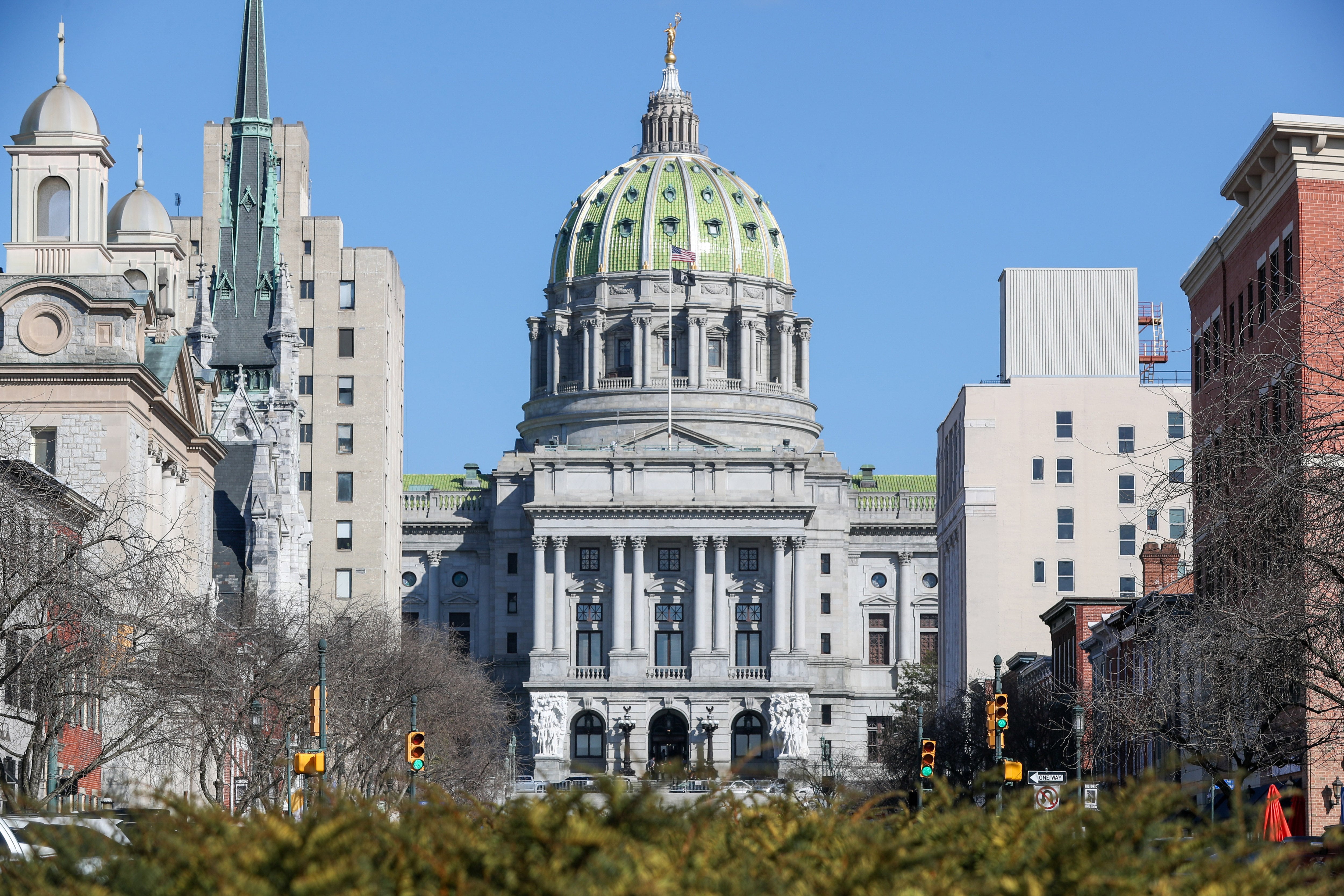Sign up for Chalkbeat Philadelphia’s free newsletter to keep up with the city’s public school system.
The Pennsylvania House of Representatives approved school funding legislation Monday that would significantly increase education funding and distribute it in a way designed to ensure all students have access to a quality, equitable education.
The groundbreaking legislation would amend the school code to guarantee basic education aid levels increase steadily for the next seven years. It would also implement a new funding formula that would dramatically reduce per pupil spending gaps between the state’s wealthy and low-income districts, which are on average among the biggest in the nation. It also includes changes to how the state funds cyber charter schools.
If enacted as part of the state’s budget process, Philadelphia schools would get more than $242 million more in basic education aid next year and nearly $1.4 billion more over the next seven years, and another $116 million annually if the cyber charter funding changes are approved.
It passed 107-94, after two hours of sometimes contentious debate.
The funding overhaul comes in the wake of a February 2023 ruling by Commonwealth Court judge Renée Cohn Jubelirer that Pennsylvania’s school funding system is unconstitutional because it fails to provide a “thorough and efficient” system of education for all students. Jubelirer ordered the legislature to overhaul the funding system.
Monday’s vote was split largely along party lines, with all Democrats voting in favor and all but five Republicans opposing the bill. The bill now goes to the Republican-dominated Senate, where its fate is in question.
“There was a time not all that long ago where the state of Pennsylvania was dead last in terms of equitably funding education,” said Rep. Michael Sturla, a Democrat from Lancaster. With this bill, Sturla said, “We’re adding more money and we’re making sure it’s getting spent on proven programs.”
Democratic Rep. Jordan Harris of Philadelphia said it is lawmakers’ “moral imperative” to fully fund Pennsylvania’s schools: “You can’t starve a system and then try to blame it for its inadequacies.”
Republican legislators complained that the bill lacked accountability for how funds are spent; that more money is not guaranteed to improve student outcomes; that traditional educational systems resist innovation; and that money should go directly to parents through school choice, especially vouchers.
“Signing a blank check for public education is the most uncreative way to go about this,” said Rep. Joseph Dorsie, a York Republican. “The only solution in my view is to fund students, not systems.”
Democratic Gov. Josh Shapiro has indicated he favors vouchers, but they’re not part of the bill passed by the House on Monday. Last year, a dispute over whether to create a voucher program in Pennsylvania held up budget talks for more than a month. Shapiro ultimately vetoed a $100 million appropriation for vouchers in the budget while calling the issue “unfinished business.”
A group of elected officials and activists, including Philadelphia Councilmembers Kendra Brooks, Isaiah Thomas, Jamie Gauthier, and Nicolas O’Rourke, rallied outside the statehouse Monday before the vote.
“Vouchers put public money in the pockets of the rich while draining resources from public schools in our communities,” said Brooks.
The school funding legislation is expected to be the centerpiece of the state’s budget this year. The state must pass its fiscal 2025 budget by June 30.
On Monday, education advocates who have long fought for school funding reform were ecstatic.
“We are headed towards a before and after moment for the children of Pennsylvania,” said Dan Urevick-Ackelsberg of the Public Interest Law Center, which helped represent the plaintiffs in the school funding case that led to Jubelirer’s 2023 ruling. “The most unfair school funding system in the nation will be no more, as thousands of new teachers, counselors, librarians, and school nurses deliver what every child deserves: the opportunity to thrive. We urge the Senate to promptly pass this bill.”
School funding bill includes cyber charter changes
The bill passed by the House would hike basic education aid by $728 million annually for the next seven years, for a total increase of $5.1 billion over that period. Most of those funds would go to 367 of the state’s 500 districts determined by the court to be underfunded relative to their students’ needs.
The proposed budget also includes $1 billion targeted to low-wealth districts that have adopted high local property taxes in an effort to make up for a relative lack of state support for their schools. It also guarantees that no district will get less state aid in 2024-25 than it did this year, even if its enrollment drops — so called “hold harmless.”
Philadelphia ranks about in the middle among the 500 districts in per pupil spending, but its schools have been chronically underfunded. Its students are much more likely to be from low-income backgrounds than their peers in surrounding suburban districts.
District leaders passed a $4.5 billion budget last month that they balanced using reserve funds, mostly federal pandemic aid that is expiring later this year. They also forecast escalating shortfalls through 2029, starting with $88 million next year, based on current revenue projections.
Mayor Cherelle Parker and other city leaders are planning a press conference Tuesday morning urging the governor and legislature to approve a state budget that would fully close Philadelphia’s funding gap.
Lawmakers hammered out the bill following hearings across the state held by the legislative Basic Education Funding Commission in the wake of Jubelirer’s decision.
The legislation would also reform how Pennsylvania’s cyber charter schools are funded in a way that would save districts more than $500 million annually. With nearly 60,000 students in 13 schools, Pennsylvania has the second-highest enrollment of students in cyber charters of any state, behind only Arizona.
It would set a flat $8,000 per-pupil rate for cyber charters’ regular education students, and a little over $13,000 for those in special education. Currently, each district pays cyber charters based on their own per-pupil costs, which can range as high as $30,000 per student for a district like Lower Merion. Philadelphia alone could save $243 million through this provision.
Cyber charters have attracted criticism in the state for years. Education Voters PA, for example, released a report released last month outlining how cyber charter schools have amassed hundreds of millions of dollars in assets while their students produce subpar outcomes. Defenders of cyber charters have said districts critical of the schools want to take choice away from students.
Chalkbeat intern Azia Ross contributed to this story.
Dale Mezzacappa is a senior writer for Chalkbeat Philadelphia, where she covers K-12 schools and early childhood education in Philadelphia. Contact Dale at dmezzacappa@chalkbeat.org.







